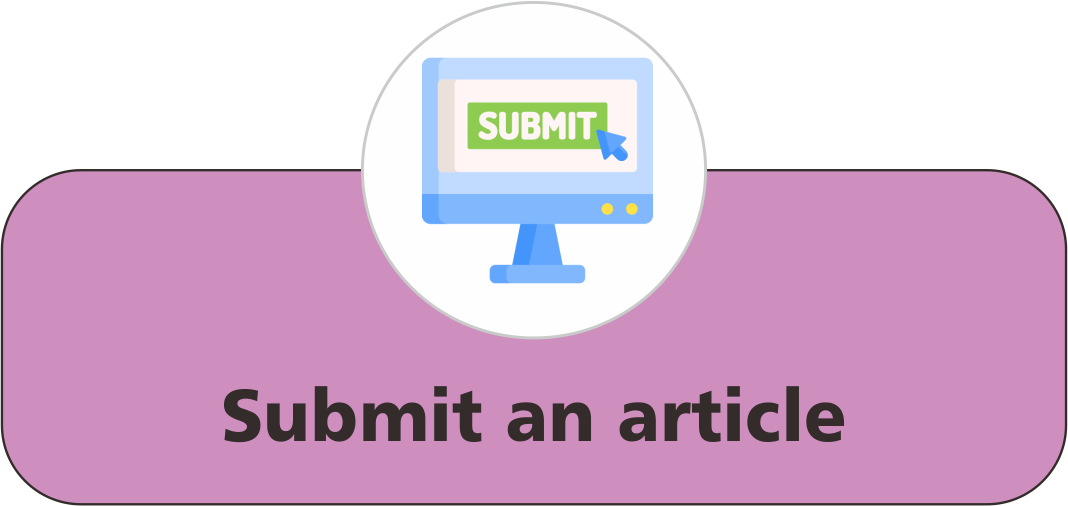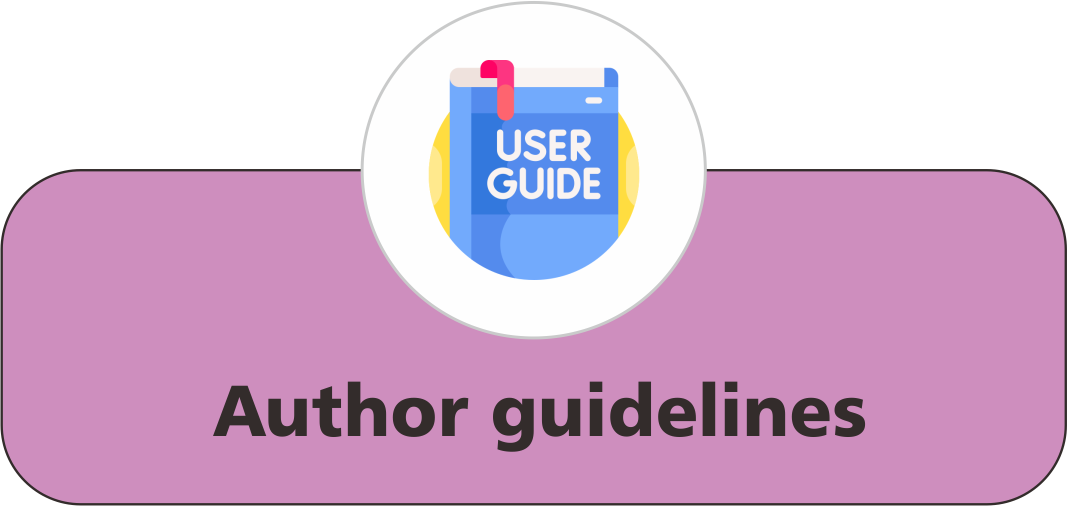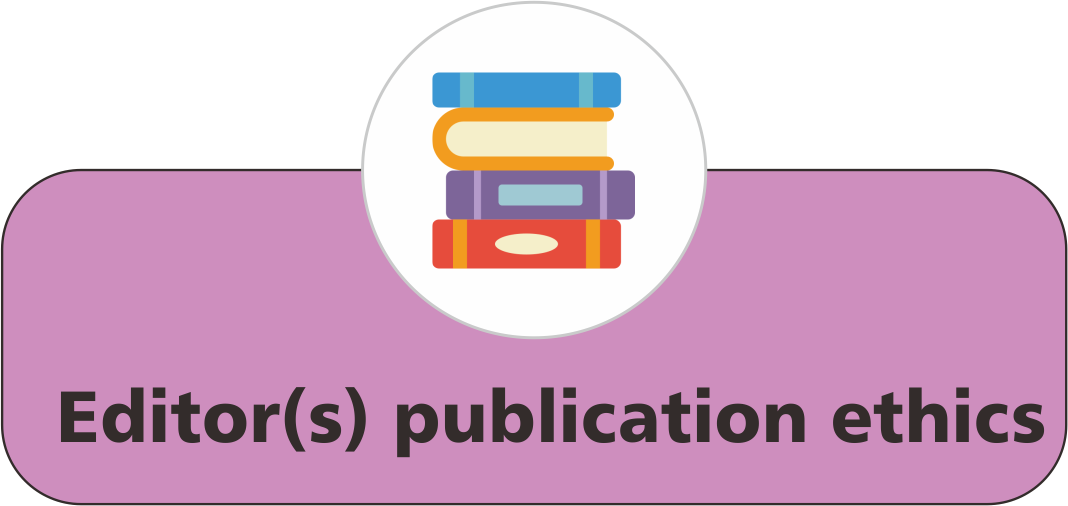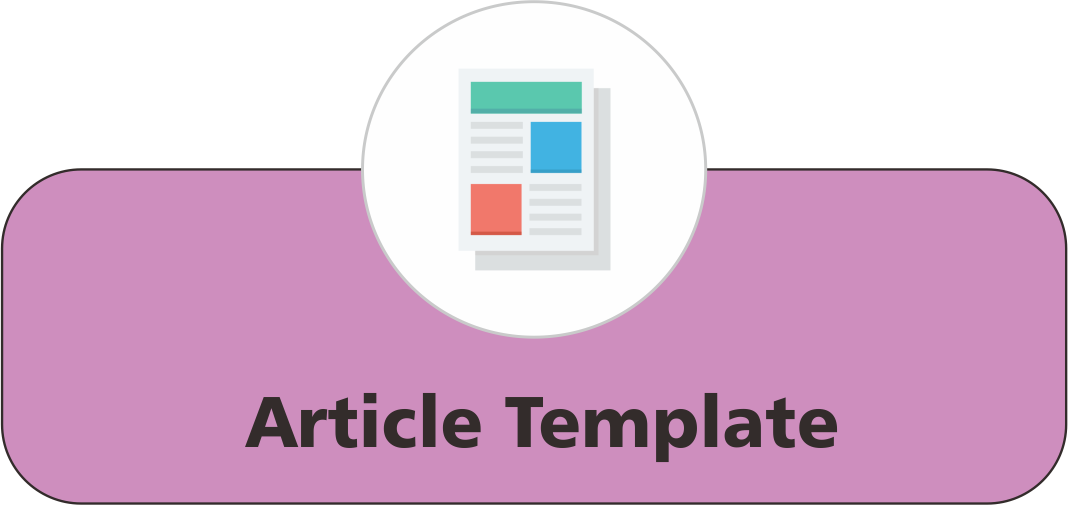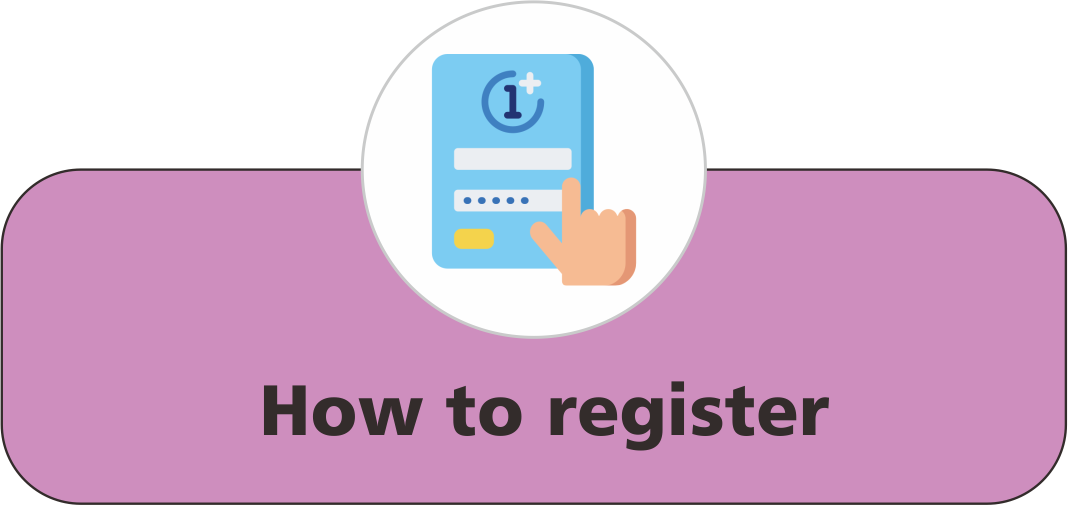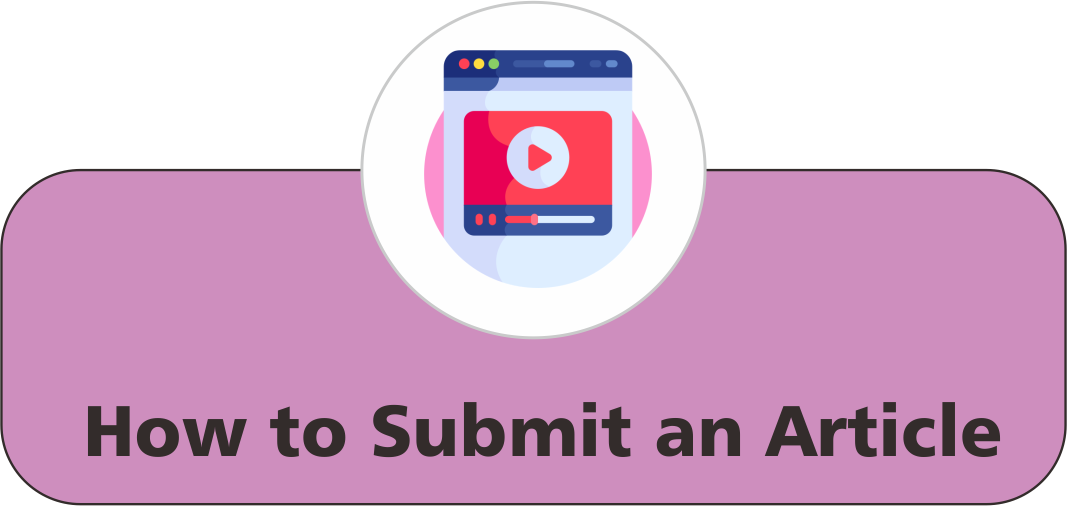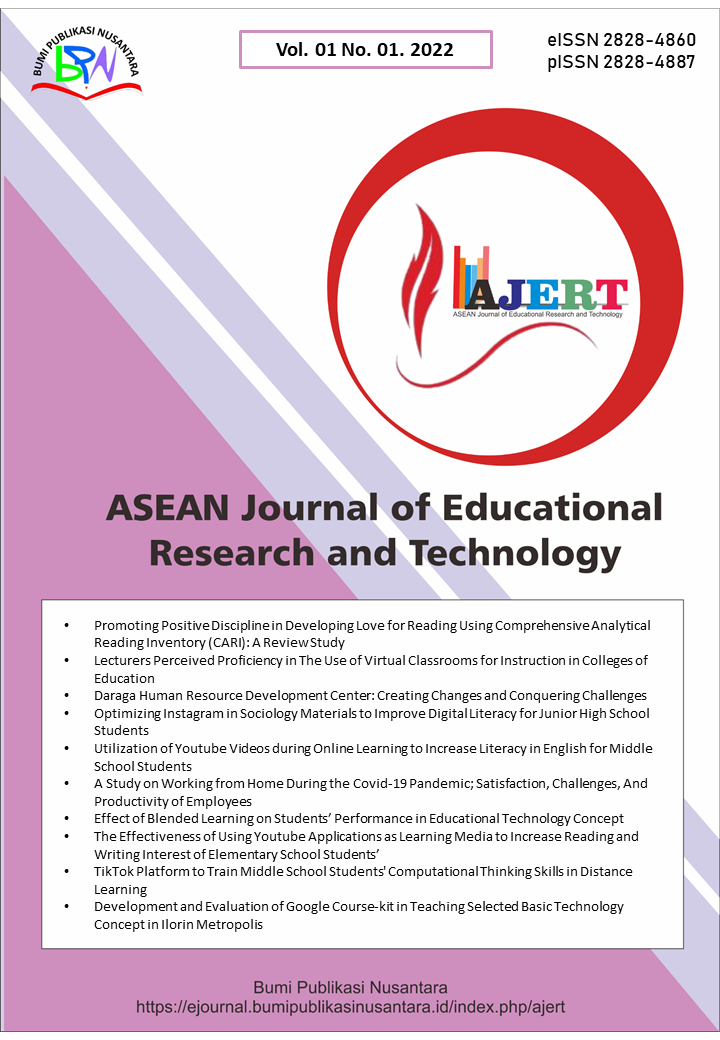Awareness and Utilization of Artificial Intelligence-Based Intelligent Tutoring Systems (ITS) In Enhancing Chemistry Education Through Information and Communication Technology (ICT)
 ), Hameed Olalekan Bolaji(2), Bolanle Tawakalt-Anu Abdulazeez(3), Aishat Oyenike Salamia(4),
), Hameed Olalekan Bolaji(2), Bolanle Tawakalt-Anu Abdulazeez(3), Aishat Oyenike Salamia(4),
(1) Al-Hikmah University
(2) Al-Hikmah University
(3) Al-Hikmah University
(4) Al-Hikmah University
 Corresponding Author
Corresponding Author
Abstract
This study explores the awareness and utilization of Artificial Intelligence (AI)-based Intelligent Tutoring Systems (ITS) in enhancing chemistry education through Information and Communication Technology (ICT) in Nigerian universities. Using a descriptive survey design, data were collected from 182 chemistry education lecturers across six geopolitical zones. The study assessed lecturers’ levels of awareness, accessibility, usage, and extent of integration of ITS platforms. Results revealed moderate to high awareness and a generally positive perception of ITS's value in improving teaching and learning outcomes. However, disparities in accessibility, institutional infrastructure, and practical integration hinder widespread adoption. While many lecturers acknowledged the benefits of ITS, challenges such as inadequate resources, limited institutional support, and inconsistent usage patterns remain. The study underscores the need for targeted training, institutional support, and policy reforms to facilitate the seamless adoption of ITS in chemistry education. These efforts are essential to harness the transformative potential of AI and ICT in the Nigerian higher education system.
Keywords
References
Adedokun, A., Oludipe, D., and Ojo, O. (2020). Exploring educators' attitudes towards the Integration of Educational Technologies: A case study of Nigerian Universities. Nigerian Journal of Educational Technology, 39(2), 68-82.
Arfin, T., Pillai, A. M., Mathew, N., Tirpude, A., Bang, R., and Mondal, P. (2023). An overview of atmospheric aerosol and their effects on human health. Environmental Science and Pollution Research, 30(60), 125347-125369.
Asmiyunda, A., Asrial, A., Sanova, A., and Miharti, I. (2025). Enhancing cognitive and communication skills in learning chemistry through case-based learning integrated with question and answer and whole-class discussion methods. Jurnal Pendidikan MIPA, 26(1), 01-09.
Bower, M., Torrington, J., Lai, J. W., Petocz, P., and Alfano, M. (2024). How should we change teaching and assessment in response to increasingly powerful generative Artificial Intelligence? Outcomes of the ChatGPT teacher survey. Education and Information Technologies, 29(12), 15403-15439.
Cai, Q., Lin, Y., and Yu, Z. (2024). Factors influencing learner attitudes towards ChatGPT-assisted language learning in higher education. International Journal of Human–Computer Interaction, 40(22), 7112-7126.
Chen, C.-H., and Huang, Y.-M. (2020). Exploring the relationships between technological pedagogical content knowledge (TPACK) Competency and Teaching Performance among EFL teachers in higher education. Educational Technology & Society, 23(3), 144-158.
Chong, Z. Y., Koo, A. C., Rahmat, H., Amir Sharji, E., Lim, K. Y., and Teoh, S. H. (2025). Online interactive resilience programme for final-year university students. Cogent Education, 12(1), 2474797.
Claudy, M. C., Garcia, R., and O’Driscoll, A. (2015). Consumer resistance to innovation—a behavioral reasoning perspective. Journal of the Academy of Marketing Science, 43, 528-544.
Dunleavy, P., and Margetts, H. (2025). Data science, artificial intelligence and the third wave of digital era governance. Public Policy and Administration, 40(2), 185-214.
Fan, Y., Tang, L., Le, H., Shen, K., Tan, S., Zhao, Y., and Gašević, D. (2025). Beware of metacognitive laziness: Effects of generative artificial intelligence on learning motivation, processes, and performance. British Journal of Educational Technology, 56(2), 489-530.
Farhan, W., Razmak, J., Demers, S., and Laflamme, S. (2019). E-learning systems versus instructional communication tools: Developing and testing a new e-learning user interface from the perspectives of teachers and students. Technology in Society, 59, 101192.
Freire, M., Talanquer, V., & Amaral, E. (2019). Conceptual profile of Chemistry: A framework for enriching thinking and action in Chemistry education. International journal of science education, 41(5), 674-692.
Gocen, A., and Aydemir, F. (2020). Artificial intelligence in education and schools. Research on Education and Media, 12(1), 13-21.
Harris, L. R. (2011). Phenomenographic perspectives on the structure of conceptions: The origins, purposes, strengths, and limitations of the what/how and referential/structural frameworks. Educational Research Review, 6(2), 109-124.
Hernandez, R. (2023). Discipline-based diversity research in chemistry. Accounts of Chemical Research, 56(7), 787-797.
Ibrahim, M., and Abdullahi, M. (2021). Technology Adoption in Nigerian Higher Education Institutions: A case study of university lecturers’ Perceptions. Journal of Information Technology Impact, 21(1), 1-17.
Iryanti, H. D., Hidayati, D. N., Tyas, E. N., and Amurao, J. M. (2024). Exploring Quizizz-based learning media for teaching maritime English vocabulary: A needs analysis for marine engineering students. Journal of English Language and Pedagogy, 7(2), 61-78.
Jackson, D. L., Gillaspy Jr, J. A., and Purc-Stephenson, R. (2009). Reporting practices in confirmatory factor analysis: An overview and some recommendations. Psychological methods, 14(1), 6.
Karsenti, T. (2019). Artificial intelligence in education: The urgent need to prepare teachers for tomorrow’s schools. Formation et Profession, 27(1), 112–116.
Kim, S., and Lee, J. (2021). Factors influencing teachers’ use of educational technology: A Structural equation modeling approach. Journal of Educational Technology & Society, 24(3), 1-15.
Lee, S., and Kim, H. (2022). Enhancing chemistry education through intelligent yutoring systems: Perceptions and practices among university lecturers. Journal of Science Education and Technology, 31(1), 45-63.
Loumpourdi, M. (2024). The future of employee development in the emerging fourth industrial revolution: a preferred liberal future. Journal of Vocational Education & Training, 76(1), 25-44.
Mahanan, M. S., Ibrahim, N. H., Surif, J., and Chee, K. N. (2021). AR module for learning changes of matter in chemistry. International Journal Interactive Mobile Technology, 15(23), 72-88.
Markose, M., and Dewtwal, M. K. (2023). Artificial intelligence and teacher education: An exploration. ISSRA Journal of Education, Linguistics and Literature, 3(6), 6-9.
Martini, B., Bellisario, D., and Coletti, P. (2024). Human-centered and sustainable artificial intelligence in industry 5.0: Challenges and perspectives. Sustainability, 16(13), 5448.
Muoneke, M. N., and Muoneke, V. C. (2022). Ethical consideration on Chemistry education and practice. African Education Indices, 12(1), 276 – 982.
Nkiko, M. O. (2021). Interrogating the teaching and learning of chemistry in Nigerian private universities: Matters arising. Journal of Education and Learning, 10(3), 1927-5250, 1927-5269
Odoom, D., Agyepong, L., Dick-Sagoe, C., and Mensah, E. O. (2025). Unveiling the social media landscape: exploring factors influencing usage patterns among tertiary education students in Ghana. Education and Information Technologies, 30(3), 3861-3883.
Oviedo, F., Ferres, J. L., Buonassisi, T., and Butler, K. T. (2022). Interpretable and explainable machine learning for materials science and chemistry. Accounts of Materials Research, 3(6), 597-607.
Radovan, M., and Radovan, D. M. (2024). Harmonizing pedagogy and technology: Insights into teaching approaches that foster sustainable motivation and efficiency in blended learning. Sustainability, 16(7), 2704.
Rijwani, T., Kumari, S., Srinivas, R., Abhishek, K., Iyer, G., Vara, H., and Gupta, M. (2025). Industry 5.0: A review of emerging trends and transformative technologies in the next industrial revolution. International Journal on Interactive Design and Manufacturing (IJIDeM), 19(2), 667-679.
Rolnick, D., Donti, P. L., Kaack, L. H., Kochanski, K., Lacoste, A., Sankaran, K., and Bengio, Y. (2022). Tackling climate change with machine learning. ACM Computing Surveys (CSUR), 55(2), 1-96.
Smith, J., Johnson, R., and Williams, A. (2021). The role of intelligent tutoring systems in education: A comprehensive review. Journal of Educational Technology, 15(3), 127-145.
Ünal, S., Çalık, M., Ayas, A., and Coll, R. K. (2006). A review of chemical bonding studies: needs, aims, methods of exploring students’ conceptions, general knowledge claims and students’ alternative conceptions. Research in Science & Technological Education, 24(2), 141-172.
Valipouri, L., and Nassaji, H. (2013). A corpus-based study of academic vocabulary in chemistry research articles. Journal of English for Academic Purposes, 12(4), 248-263.
Article Metrics
Abstract View : 626 times
: 626 times Download : 271 times
Download : 271 times
Refbacks
- There are currently no refbacks.
Copyright (c) 2025 Bumi Publikasi Nusantara

This work is licensed under a Creative Commons Attribution-ShareAlike 4.0 International License.

